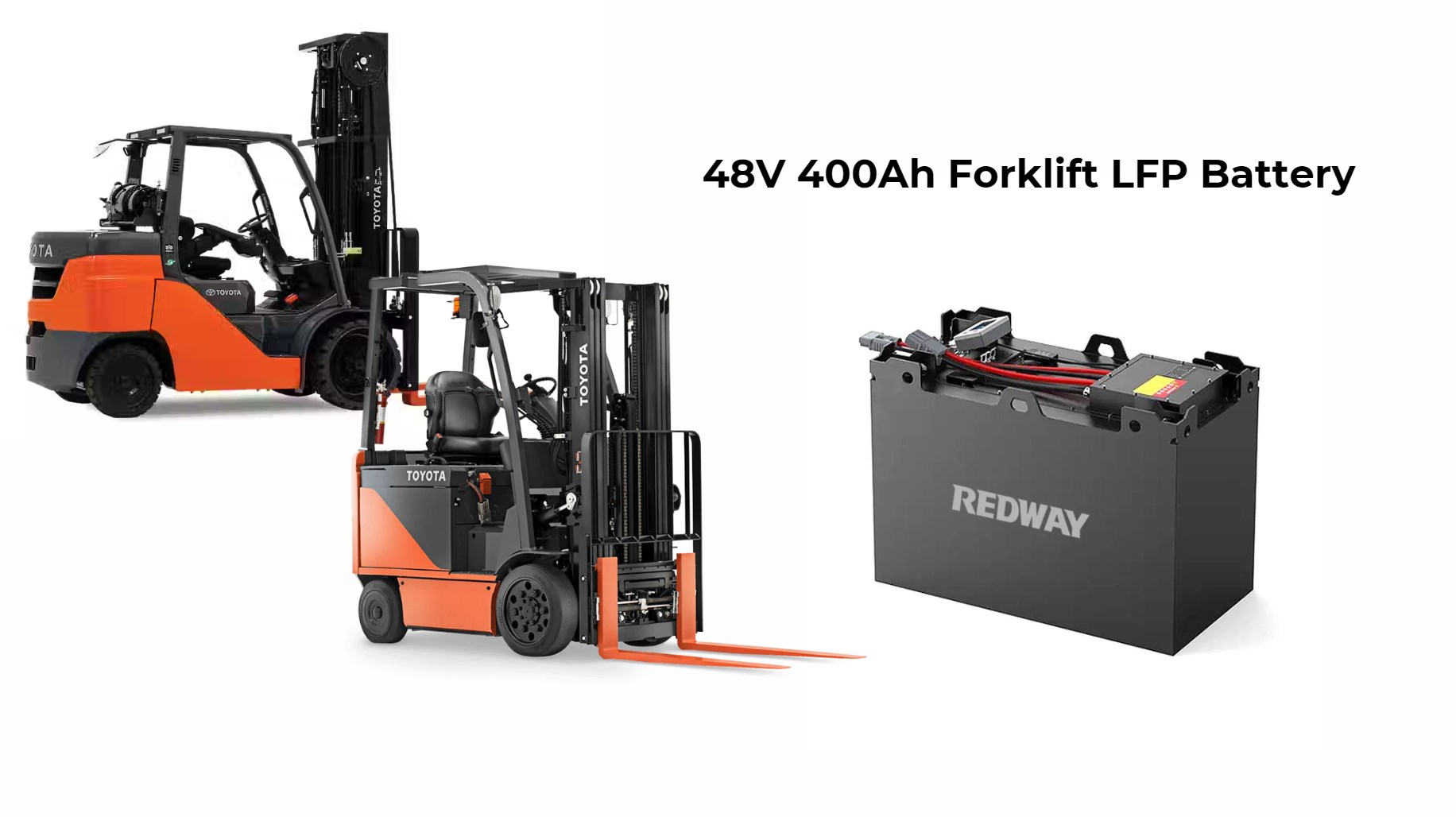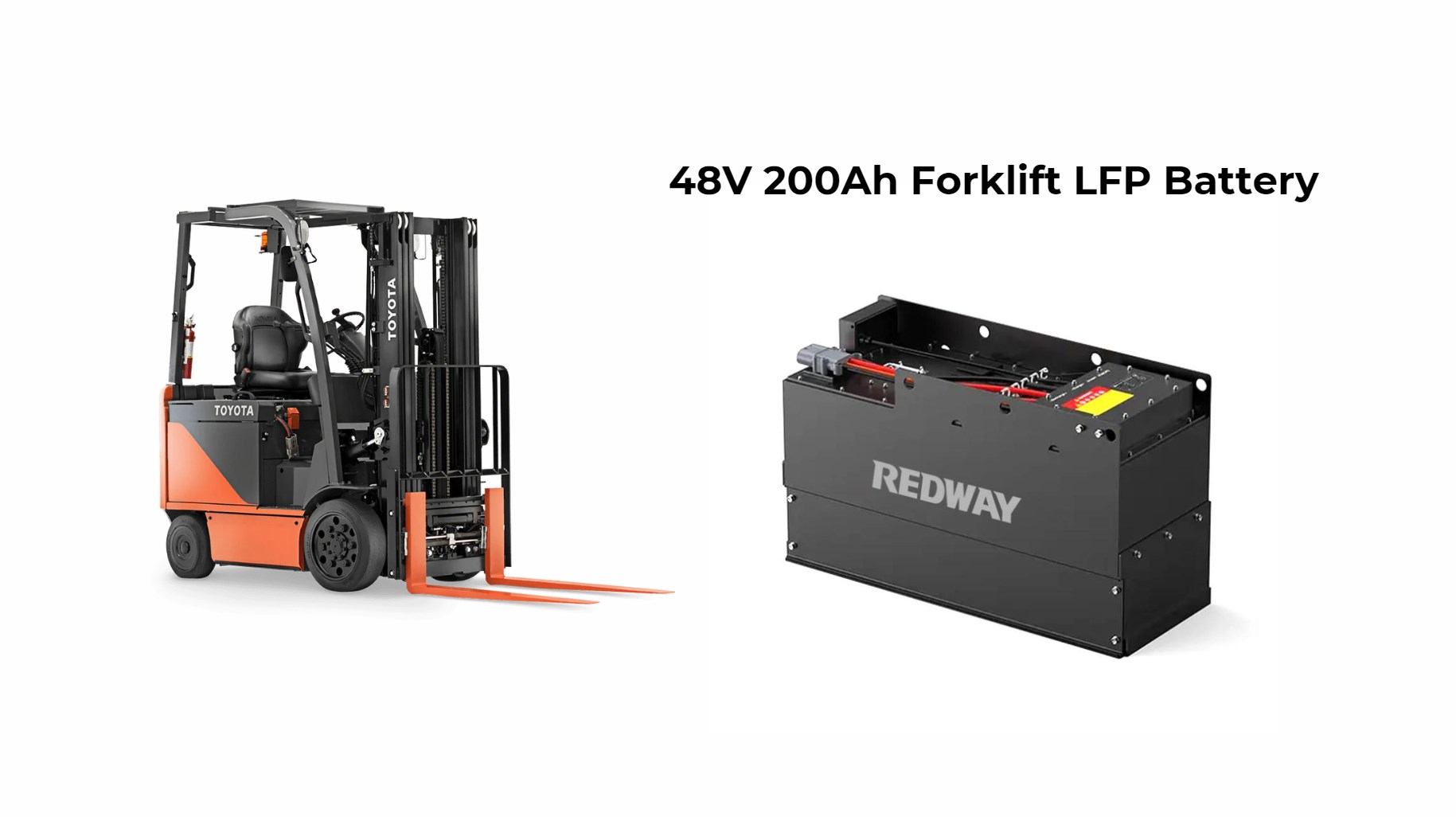Forklift battery amp hours (Ah) measure the total energy capacity of a battery, indicating how long it can operate under specific loads. For example, a 100 Ah battery can provide 100 amps for one hour or 50 amps for two hours before needing a recharge.
How Do You Calculate Required Amp Hours for Your Forklift?
To calculate required amp hours, assess your daily usage: consider the duration of operation, load weight, and frequency of use. Multiply the average current draw (in amps) by the expected operating hours to determine the necessary amp hour capacity.
To calculate required amp hours, consider your forklift’s usage patterns:
Wholesale lithium golf cart batteries with 10-year life? Check here.
- Duration of Use: Assess how many hours per day the forklift operates.
- Load Weight: Heavier loads require more power.
- Frequency of Use: Frequent operation may necessitate higher capacity batteries.
By analyzing these factors, you can determine the appropriate amp hour rating needed.
What Factors Influence Forklift Battery Amp Hour Ratings?
Factors influencing amp hour ratings include discharge rate, battery chemistry, and temperature. Higher discharge rates typically reduce effective capacity, while extreme temperatures can either decrease performance or accelerate degradation, affecting overall amp hour availability.
Want OEM lithium forklift batteries at wholesale prices? Check here.
Several factors can affect a forklift battery’s effective amp hour rating:
- Battery Chemistry: Different types (e.g., lead-acid vs. lithium-ion) have varying capacities.
- Discharge Rate: Higher discharge rates can reduce available energy due to internal resistance.
- Temperature Effects: Extreme temperatures can impact performance, with cold reducing capacity and heat causing efficiency loss.
Know More:
What Are Forklift Battery Sizes and Configurations?
What Are the Key Features of 6 x 9 Forklift Batteries?
What Are Forklift Battery Amp Hours and Why Are They Important?
Why Is Proper Maintenance Important for Clark C300 Forklift Batteries?
What Is a Forklift Battery Charger Stand and Why Is It Important?
What Is a Forklift Battery Charger Station and Why Is It Important?
What Is a 36 Volt Single Phase Forklift Battery Charger?
How Does Temperature Impact Battery Performance?
Temperature significantly affects battery performance; cold conditions can reduce capacity, while high temperatures may lead to overheating and efficiency loss. Maintaining an optimal temperature range is essential for maximizing battery performance and lifespan.
Temperature plays a significant role in battery performance:
- Cold temperatures can decrease capacity significantly.
- Excessive heat may lead to overheating and reduced lifespan.
Understanding your operating environment is crucial when selecting a forklift battery.
What Maintenance Practices Help Extend Battery Life?
To extend battery life, regularly check and maintain water levels (for lead-acid batteries), clean terminals to prevent corrosion, monitor charging cycles, and ensure proper ventilation during charging. Following manufacturer guidelines is crucial for optimal performance.
Proper maintenance is vital for maximizing amp hour capacity:
- Keep terminals clean to prevent corrosion.
- Ensure correct water levels in lead-acid batteries.
- Follow manufacturer guidelines for charging practices.
Regular maintenance not only extends battery life but also ensures optimal performance during operations.
How Do Lithium-Ion and Lead-Acid Batteries Compare in Amp Hours?
Lithium-ion batteries generally offer higher amp hour ratings compared to lead-acid batteries due to their efficient discharge characteristics. They also maintain consistent performance throughout their discharge cycle, making them a preferred choice for modern forklifts.
Lithium-ion batteries typically offer higher efficiency and longer life cycles compared to traditional lead-acid batteries:
- Lithium-ion batteries maintain stable performance throughout their discharge cycle.
- Lead-acid batteries may require more frequent maintenance but are generally cheaper upfront.
Choosing between these options depends on operational needs and budget considerations.
When Should You Charge Your Forklift Battery for Optimal Performance?
For optimal performance, charge your forklift battery when it reaches about 20% state of charge. Avoid deep discharges to extend battery life and ensure regular charging during breaks or shifts to maintain efficiency.
Charging practices significantly influence battery life:
- Charge when levels drop between 20% to 30%.
- Avoid charging above 40% to preserve cycle life.
Implementing proper charging schedules helps maintain optimal performance and extends overall lifespan.
What Are the Cost Considerations for Higher Amp Hour Batteries?
Higher amp hour batteries typically come at a higher initial cost but can offer long-term savings through reduced downtime and maintenance needs. Consider the total cost of ownership, including lifespan and efficiency, when evaluating options.
Investing in higher amp hour batteries can yield substantial benefits:
- Higher initial costs may be offset by reduced downtime and increased productivity.
- Consider long-term savings from lower maintenance requirements with lithium-ion options.
Evaluating costs against operational needs will help determine the best investment strategy.
How Do Discharge Rates Affect Amp Hour Capacity?
Discharge rates impact amp hour capacity; higher discharge rates often lead to lower effective capacity due to internal resistance. It’s essential to select a battery that matches your forklift’s usage patterns to optimize performance.
Discharge rates directly impact how much energy a battery can provide:
- At higher discharge rates, batteries may deliver less energy due to increased internal resistance.
- Understanding expected discharge rates based on your forklift’s usage patterns is crucial when selecting a suitable battery.
What Future Trends Are Emerging in Forklift Battery Technology?
Emerging trends in forklift battery technology include advancements in lithium-ion batteries for faster charging and longer lifespans, enhanced battery management systems for real-time monitoring, and increased focus on sustainability through recycling initiatives.
- Innovations aim to reduce charging times while increasing overall capacity.
- Future technologies may lead to more sustainable options with lower environmental impacts.
Expert Views
“Understanding forklift battery amp hours is critical when selecting the right battery for your application,” states an expert from Redway. “Aligning amp hour ratings with specific operational needs ensures businesses maintain productivity throughout shifts.”
Conclusion
In conclusion, understanding forklift battery amp hours is essential for optimizing material handling operations. By assessing usage patterns, calculating power needs, and selecting appropriate batteries, businesses can ensure their forklifts operate efficiently and effectively.
FAQ Section
- What are forklift battery amp hours?
Forklift battery amp hours measure the total energy capacity available in a battery, indicating how long it can operate under specific loads before needing recharging. - How do I calculate required amp hours for my forklift?
To calculate required amp hours, analyze your daily usage patterns, including duration of use, load weight, and frequency of use. - What factors influence fork lift battery amp hour ratings?
Factors include battery chemistry, discharge rates, and temperature effects that can impact overall performance and capacity.







